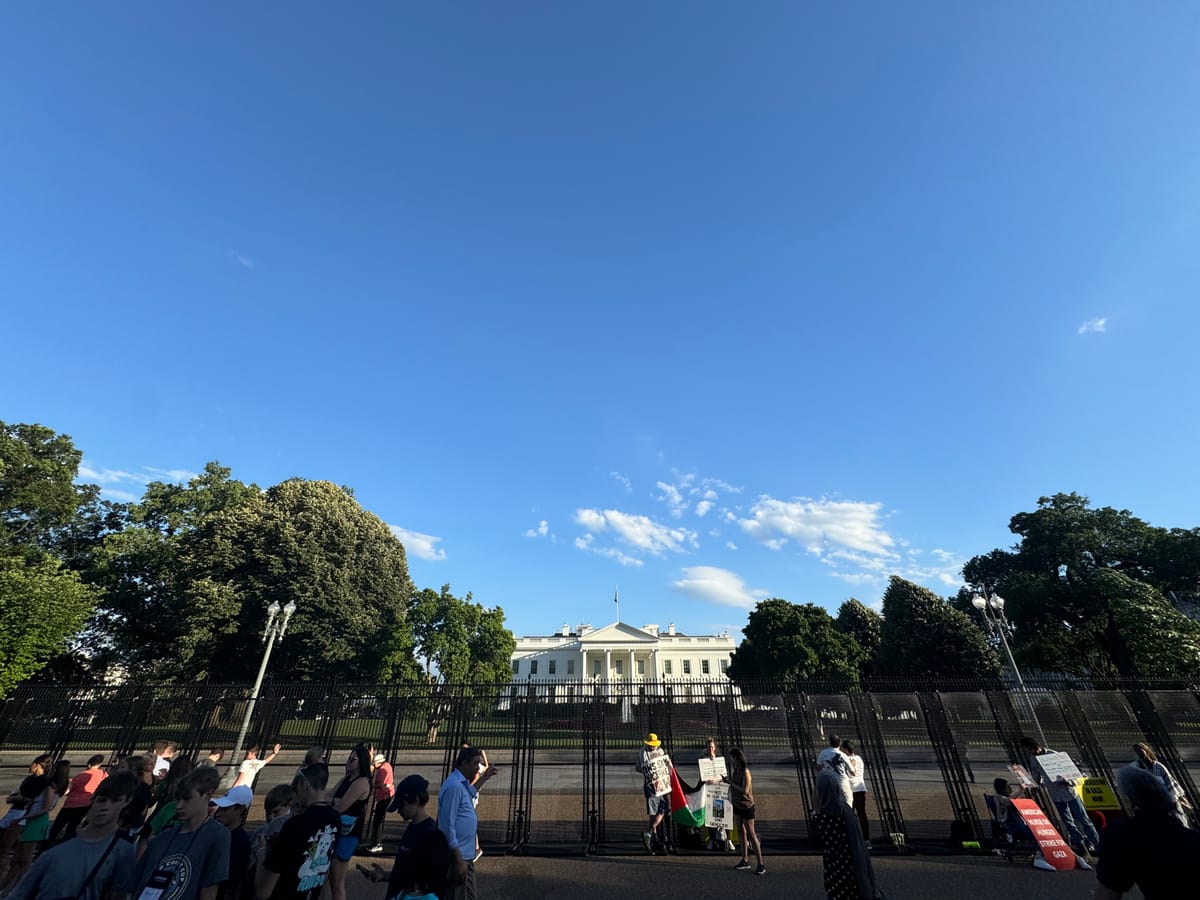Why the U.S. government approach to open government is flailing – and how to fix it

Good morning from shady upstate New York, where I'm feeling grateful to have escaped the building heatwave in Washington. If you're in a zone of dangerous heat across the United States and beyond, please be extra careful today.
Alex Howard here, with another civic text.
Today, I want to share some thoughts about my response to the United States government's request for comments on its mid-term self-assessment of the United States fifth National Open Government National Action Plan. As the annotated comment I published online this morning assesses, the U.S. government's self-assessment suffers from opacity and omission. (It's long, since it goes over years of failures, but since it represents a decade of my work, I wanted to make sure to share it with you all.)
If you haven't heard of a United States "National Action Plan on Open Government" or the Open Government Partnership before, I don't blame you!
Neither this administration – much less the last – has made a good faith effort to inform you and engage all Americans about our nation's involvement in the global partnership to improve good governance.
Unfortunately, the President of the United States has publicly celebrated professional and collegiate sports champions more than he's recognizing the people in and outside of government who have been working to make agencies more transparent, accountable, collaborative, and participatory.
The hard truth is the Biden-Harris Administration did not reify the Open Government Partnership with President Biden and Vice President’s participation in 2021. A canned video in December 2021 that the White House never promoted did not suffice.
This White House did not engage mainstream news media outlets and tech companies about co-creation & implementation in 2022, nor involve Congress & the judiciary branch in 2022. The U.S. General Services Administration did not create a multi-stakeholder network that year, either. The USA did not "go big" on good governance, not-withstanding a (laudable!) national strategy on anti-corruption, nor has it since.

And that is why the Open Government Partnership remains mostly irrelevant to power, politics, and policy in the United States in 2024.
Whether that will change in 2025 is unclear, as with so much else over the next year.
To date, this White House has refused to revise its weak plan, as the Partnership’s Independent Review Mechanism recommended, or co-create & add new “challenge” commitments, as organizations and advocates devoted to good government have been asking for years.
The Biden administration has yet to respond formally to the “contrary to process” letter the Partnership sent in August 2023, or to the letter a coalition of good governance groups sent to the President, bring senior officials to in-person roundtables in DC and around the nation, fix an opaque process, and heal badly broken relationships.

A fair account of this administration’s record on open government does include many notable accomplishments, including:
-historic disclosures around Russia's war plans, JFK files, UFO files, & more
-restoration of press briefings, White House visitor logs
-improved scientific integrity & open access policies, including health & COVID data
-new challenges and prizes
-public engagement around AI
-collaboration around increasing public participation in rulemaking
-a new open government secretariat at the GSA, coupled with a new federal advisory committee to act as a multistakeholder mechanism to co-create and implement a sixth national action plan in 2025
That said, the story of these past three years is also one of missed opportunities, opacity, lack of accountability for broken promises around past commitments, and failures in collaboration, co-creation, and public engagement, as I said in the public comment filed at Regulations.gov.
We need more targeted, historic actions right now to address secrecy, corruption, and advanced truth decay across American society, from strengthening the Freedom of Information Act to revolutionizing how classification and declassification works — not in 2025.
A key goal must be restoring trust in government, from elections to institutions to officials to physicals to civil servants to data feeds to the rule of law itself.
The next commitments the US government makes to government transparency should be ambitious, understandable, and connected to impact. These commitments should come from all three branches of U.S. government, as in other nations, not just the executive branch, and be co-created with each federal agency’s stakeholders.
The scope and scale of commitments should be commensurate with our grand national challenges, designed to inspire, inform, and engage the people governments serve.
The U.S. government should aspire to not only reach the global standards for open governance – like eliminating anonymous corporations and shell companies using open beneficial ownership registries, embracing open procurement, or independent freedom of information commissions – but set new high water marks on everything from AI to public participation.
In an alternate universe, we'll see a White House encouraging and supporting every state and metropolis to reform their FOIA laws, invest in public engagement and participation to rebuild trust, co-create open government plans, implement commitments in the open across the USA, and then celebrate with civil society members.
I wish I were more optimistic about any of that coming to pass under the current administration, given the urgent need to enact and implement government transparency and accountability reforms to combat secrecy, corruption, and authoritarianism around the world – and at home. There's no one coming to help but us.
As always, you can reach me at alex@governing.digital with comments, questions, suggestions, or other feedback. If you find these newsletters useful, please share with your networks and communities. Thank you for your continued support!




